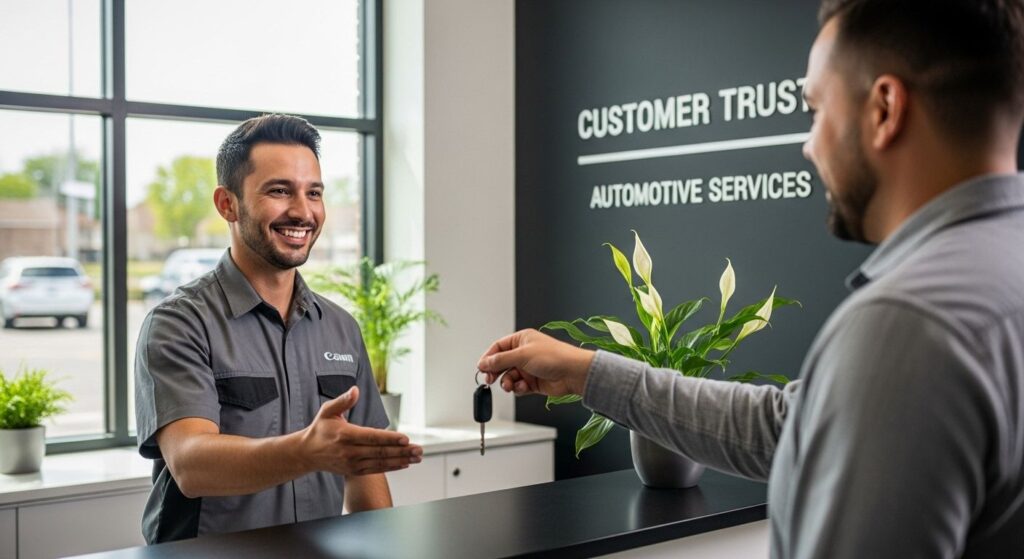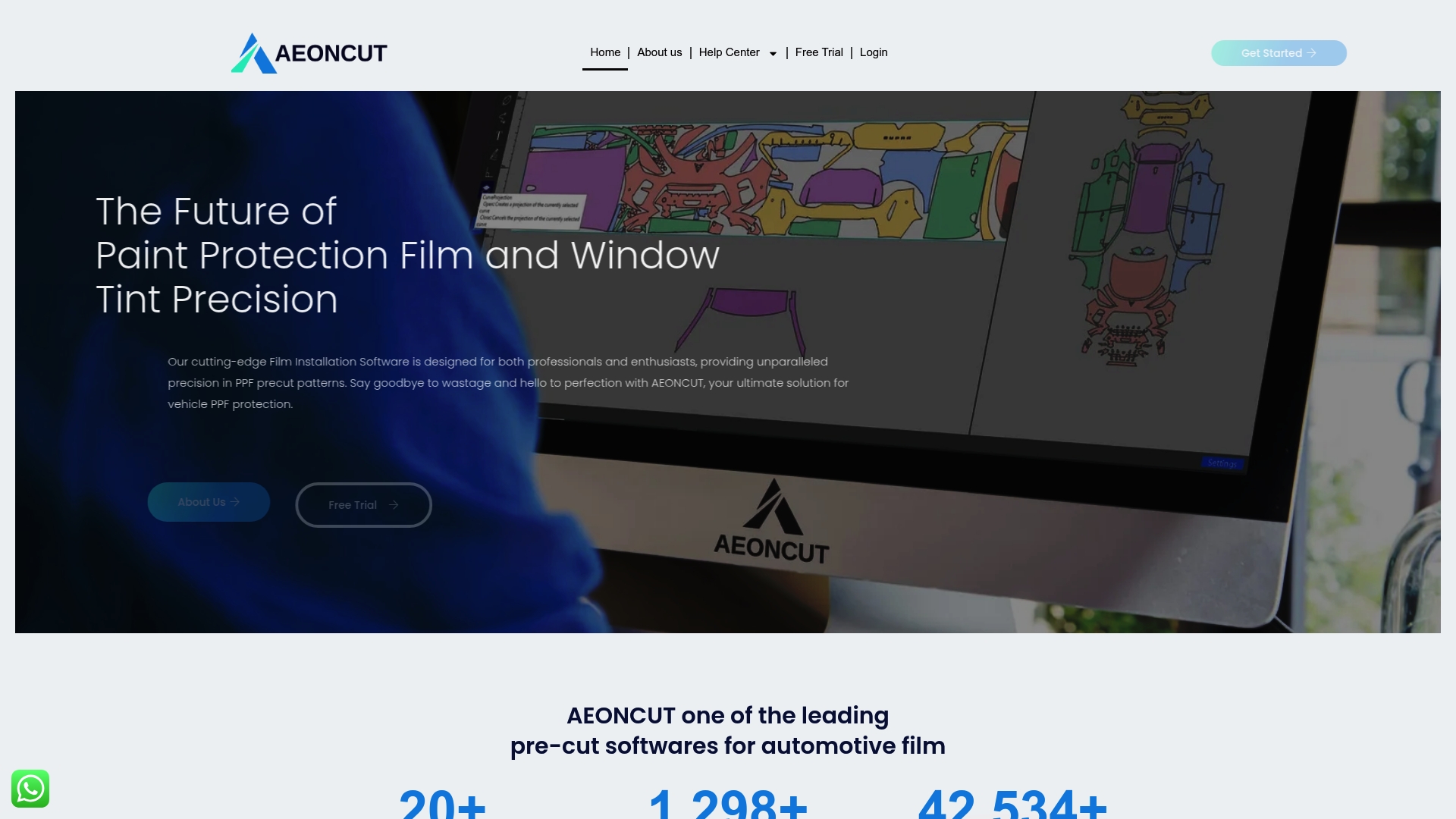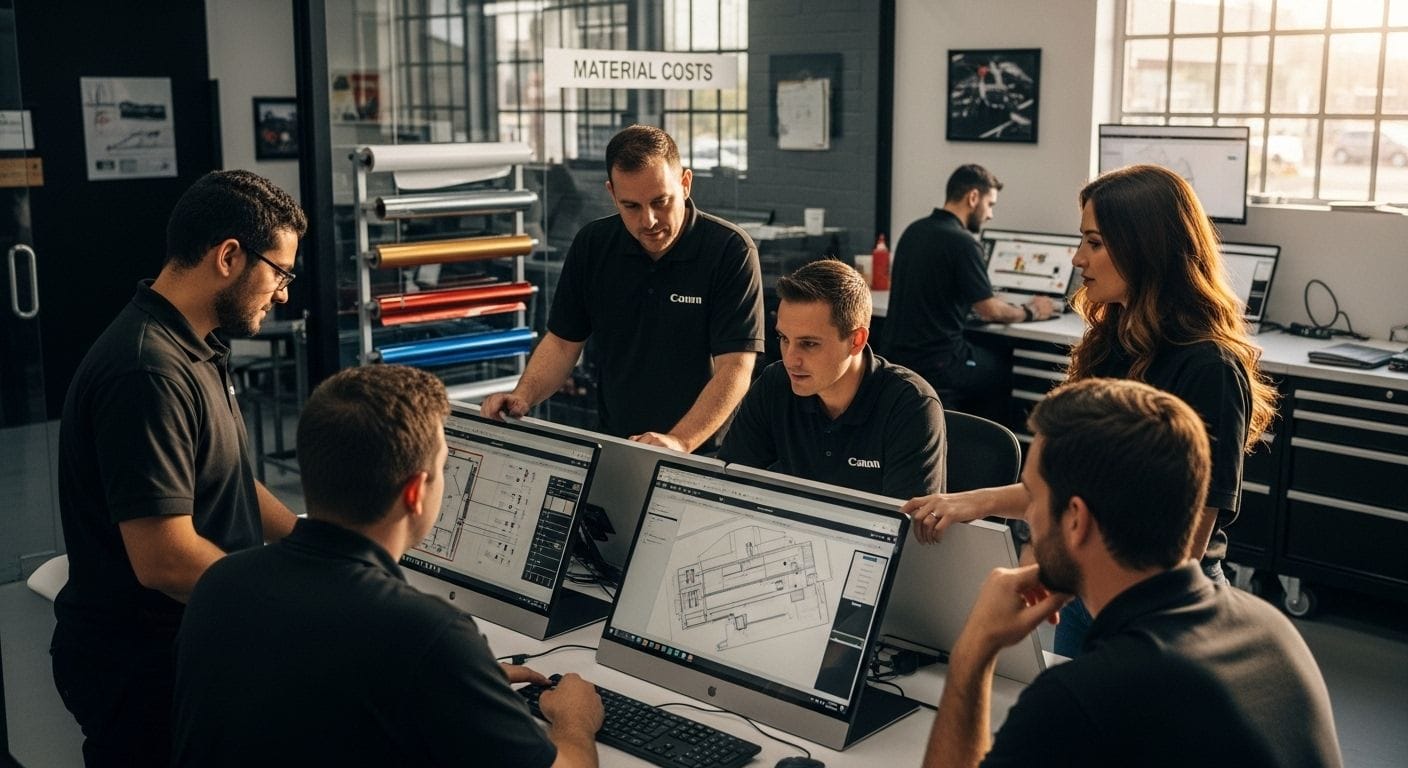
Customer trust is often seen as a soft concept in business but its role in automotive services is anything but minor. Companies with strong customer trust can reduce acquisition costs by up to 40 percent while increasing loyalty and profit margins. It sounds like a marketing advantage but it is actually the linchpin that separates businesses that merely survive from those that dominate their sector.
Table of Contents
- What Is Customer Trust And Its Role In Business?
- Why Building Customer Trust Matters In Automotive Services
- How Trust Is Formed Through Customer Experience
- Key Concepts Influencing Customer Trust In The Automotive Sector
- The Impact Of Transparency And Communication On Trust
Quick Summary
| Takeaway | Explanation |
|---|---|
| Trust is a critical competitive advantage | Customer trust leads to repeat business and positive referrals, essential for success in automotive services. |
| Transparent communication builds trust | Open dialogue about services fosters client confidence and enhances perceived reliability. |
| Consistent quality is paramount | Reliable service delivery reinforces trust and encourages customer loyalty over time. |
| Understanding customer needs is essential | Anticipating and addressing client expectations creates deeper connections and drives satisfaction. |
| Emotional connections enhance loyalty | Trust development relies on connecting emotionally with customers through empathy and responsiveness. |
What is Customer Trust and Its Role in Business?
Customer trust represents a fundamental psychological and emotional connection between businesses and their clients, forming the cornerstone of sustainable commercial relationships. In the automotive services sector, trust determines whether customers feel confident selecting a particular service provider, making it a critical competitive advantage.
The Psychological Foundation of Customer Trust
At its core, customer trust emerges from consistent demonstration of reliability, competence, and transparency. According to research in the International Journal of Environmental Research and Public Health, trust involves a customer’s willingness to become vulnerable based on positive expectations about a business’s intentions and behaviors.
Trust encompasses several key psychological dimensions:
- Credibility: Proving technical skills and professional knowledge
- Reliability: Delivering consistent, dependable service
- Intimacy: Understanding and anticipating customer needs
- Self-orientation: Prioritizing customer interests over immediate financial gains
Strategic Importance in Business Performance
Building customer trust is not merely an abstract concept but a quantifiable business strategy with measurable outcomes. Organisations that successfully establish trust experience significant advantages:
- Higher customer retention rates
- Increased word-of-mouth recommendations
- Greater customer loyalty
- Reduced price sensitivity
- Faster customer acquisition
In automotive services, trust translates directly into repeat business, positive reviews, and robust referral networks. Customers who feel genuinely understood and respected are more likely to return and recommend services to their networks, creating a sustainable business ecosystem.
Professional service providers must recognize that trust is earned incrementally through transparent communication, consistent quality, and genuine commitment to solving customer challenges. It requires a holistic approach that goes beyond transactional interactions, focusing instead on building long-term relationships founded on mutual respect and understanding.
Why Building Customer Trust Matters in Automotive Services
In the competitive landscape of automotive services, customer trust represents more than a soft skill—it is a critical business survival mechanism. Building customer trust directly impacts an organisation’s reputation, financial performance, and long-term sustainability.
Economic Impact of Customer Trust
Customer trust transforms transactional interactions into enduring relationships that generate substantial economic value. According to the National Academies of Sciences, Engineering, and Medicine, trust influences consumer perceptions of safety, reliability, and technological competence, which are paramount in automotive services.
The economic implications of robust customer trust include:
This table presents the economic benefits that building strong customer trust brings to automotive service businesses, helping to clarify the tangible business impact discussed.
| Economic Benefit | Explanation |
|---|---|
| Reduced acquisition costs | Lower spending required to attract new customers |
| Enhanced customer lifetime value | Greater total revenue generated per customer across their lifecycle |
| Higher profit margins | Ability to command premium prices due to higher perceived value |
| Lower marketing expenditure | Reduced promotional costs thanks to word-of-mouth referrals |
| Increased referral-driven growth | More new business generated by recommendations from satisfied clients |
- Reduced customer acquisition costs
- Enhanced customer lifetime value
- Higher profit margins through premium service perception
- Lower marketing expenditure
- Increased referral-driven business growth
Psychological Dynamics of Service Selection
Customers do not merely purchase automotive services they invest in experiences and perceived value. Trust acts as the primary psychological filter through which potential clients evaluate service providers. Professional instalments like vehicle protection films and window tinting require significant client confidence, as these services involve substantial financial investment and personal property modification.
Key psychological factors driving trust include:
- Transparency in service processes
- Consistent quality delivery
- Professional expertise demonstration
- Clear communication of potential outcomes
- Responsive customer support
For automotive service professionals, understanding how to establish comprehensive business foundations becomes essential in cultivating client relationships that transcend individual transactions.
Ultimately, customer trust is not generated through marketing rhetoric but through consistent, authentic demonstration of professional commitment. Automotive service providers who prioritize client understanding, technical excellence, and transparent communication will distinguish themselves in an increasingly competitive marketplace.
How Trust is Formed Through Customer Experience
Customer experience represents the intricate journey of interactions, perceptions, and emotional responses that collectively shape trust in automotive services. This holistic process transcends individual transactions, creating a comprehensive narrative of reliability and professional competence.
Touchpoints of Trust Formation
According to the Transportation Research Board, trust emerges through transparent, consistent engagement across multiple service touchpoints. Each interaction becomes an opportunity to demonstrate professional integrity and technical expertise.
Critical touchpoints in automotive services include:
- Initial consultation and assessment
- Technical communication about service processes
- Quality of workmanship
- Post-service follow-up
- Problem resolution mechanisms
Psychological Mechanisms of Trust Development
Trust formation follows a nuanced psychological progression where customers continuously evaluate service providers against their expectations. Automotive professionals must understand that trust is not a singular event but a cumulative experience built through consistent, positive interactions.
Key psychological mechanisms driving trust include:
- Predictability of service outcomes
- Demonstration of technical competence
- Emotional connection and empathy
- Transparency in communication
- Consistent performance delivery
Professional automotive service providers can enhance their customer complaint management strategies to further strengthen trust-building processes.
Ultimately, customer experience in automotive services is a dynamic, multifaceted interaction that requires deliberate, strategic cultivation of positive emotional and professional connections. Successful trust formation demands a holistic approach that balances technical excellence with genuine customer understanding.
Key Concepts Influencing Customer Trust in the Automotive Sector
Customer trust in automotive services emerges from a complex interplay of professional, technical, and interpersonal factors that collectively shape client perceptions and experiences. Understanding these foundational concepts enables service providers to strategically cultivate robust, long-lasting client relationships.
Core Trust Determinants
Research exploring trust-based relationships in automotive after-sales services highlights several critical determinants that influence customer confidence and loyalty.
Fundamental trust-building concepts include:
![]()
- Consistent service quality
- Technical competence demonstration
- Transparent communication
- Ethical business practices
- Predictable performance outcomes
Psychological and Professional Dimensions
Trust formation in automotive services transcends mere transactional interactions, requiring a holistic approach that integrates psychological understanding with professional excellence. Service providers must recognize that customers evaluate trustworthiness through multiple interconnected lenses.
Key psychological and professional dimensions encompass:
The table below summarises the key psychological and professional dimensions that underpin customer trust in the automotive sector, clarifying their meaning and role.
| Dimension | Description |
|---|---|
| Emotional intelligence | Ability to empathise and connect emotionally with customers |
| Technical expertise validation | Demonstration and proof of professional skills and knowledge |
| Proactive problem resolution | Addressing potential customer issues before they escalate |
| Reliable performance tracking | Monitoring and evidencing consistent service delivery |
| Personalised service experiences | Tailoring interactions and offerings to individual customer needs |
- Emotional intelligence in customer interactions
- Technical expertise validation
- Proactive problem resolution
- Reliable performance tracking
- Personalized service experiences
Understanding emerging industry trends becomes crucial for automotive professionals seeking to maintain competitive edge and continuously enhance trust-building strategies.
Ultimately, customer trust represents a dynamic, multifaceted construct requiring sustained commitment to professional integrity, technical excellence, and genuine client-centric engagement. Automotive service providers who deliberately cultivate these foundational concepts will distinguish themselves in an increasingly competitive marketplace.
The Impact of Transparency and Communication on Trust
Transparency and communication represent fundamental pillars of customer trust in automotive services, transforming complex technical interactions into clear, comprehensible experiences that foster long-term client relationships. These elements serve as critical mechanisms through which service providers demonstrate professionalism, technical competence, and genuine client commitment.
Transparency as a Trust Catalyst
Research investigating transparency in the automotive sector reveals that open, honest communication significantly enhances customer confidence and perceived service reliability.
Key transparency practices include:
- Detailed service process explanations
- Clear pricing structures
- Upfront communication about potential challenges
- Real-time updates on service progress
- Comprehensive documentation of work performed
Communication Strategies for Building Trust
Effective communication transcends mere information sharing, representing a strategic approach to building emotional connections and demonstrating professional integrity. Automotive service providers must develop nuanced communication frameworks that address both technical and emotional customer needs.
Essential communication strategies encompass:
- Active listening techniques
- Technical information simplification
- Proactive problem anticipation
- Empathetic response mechanisms
- Consistent and predictable information delivery
Professionals can enhance their industry expertise by developing sophisticated communication skills that translate technical complexity into client-friendly narratives.
Ultimately, transparency and communication function as powerful trust-building instruments, bridging the gap between technical expertise and customer understanding. Automotive service providers who master these communication dimensions will consistently differentiate themselves in a competitive marketplace.

Build Real Customer Trust with Precise Results
If you want to turn trust into real, profitable relationships, credible solutions are essential. In automotive services, every client expects transparency, consistency and proven technical skill. With AEONCUT’s professional software, you can deliver industry-leading results that match the psychological drivers highlighted in our article. Say goodbye to doubts about accuracy and service quality. Give your customers a tangible reason to believe in your expertise on every job.

Experience the trust-building power of precision and efficiency. The AEONCUT pattern library and smart AI-driven technology let you provide reliable, high-quality protection with minimal waste. Explore our extensive range of features and tutorials and see why top installers and car enthusiasts trust AEONCUT for every vehicle. Visit aeoncutsw.com today and transform trust into long-term customer loyalty. Don’t wait. The next level of professional confidence starts here.
Frequently Asked Questions
What is customer trust in the automotive services sector?
Customer trust in the automotive services sector refers to the psychological and emotional connection that establishes confidence between service providers and customers, crucial for building long-term relationships.
How can automotive service providers build customer trust?
Automotive service providers can build customer trust by demonstrating credibility, reliability, transparency, and prioritising customer needs over immediate profits through consistent quality performance and clear communication.
What role does customer experience play in building trust?
Customer experience plays a pivotal role in building trust as it encompasses the entire journey of interactions, perceptions, and emotional responses that customers have with a service provider, shaping their trust over time.
Why is transparency important for customer trust in automotive services?
Transparency is important for customer trust as it ensures open and honest communication regarding service processes, pricing, and potential challenges, which boosts customers’ confidence in the reliability of the services provided.
Recommended
- How Window Tint Works
- Building a PPF Business in 2025
- Window Tint & PPF Combo Services
- Window Tint & PPF Combo Services
- How to Buy a Rebuilt Car Safely


